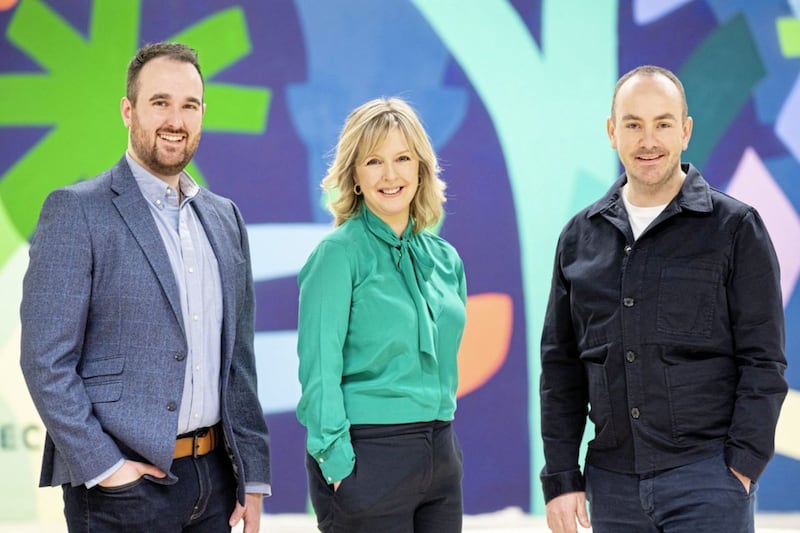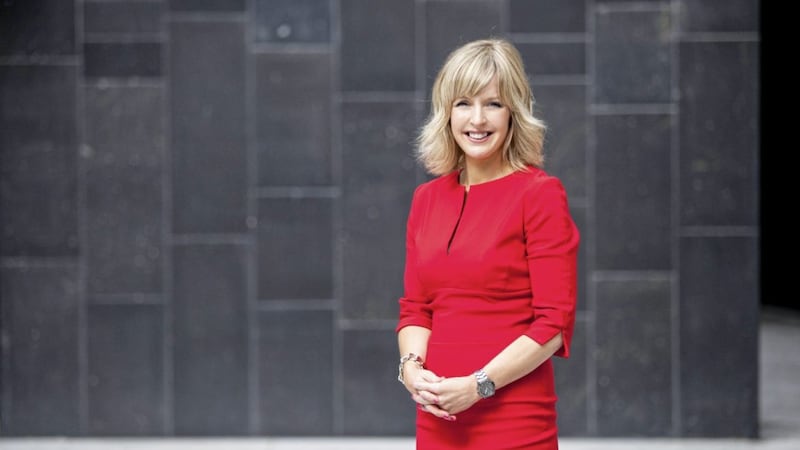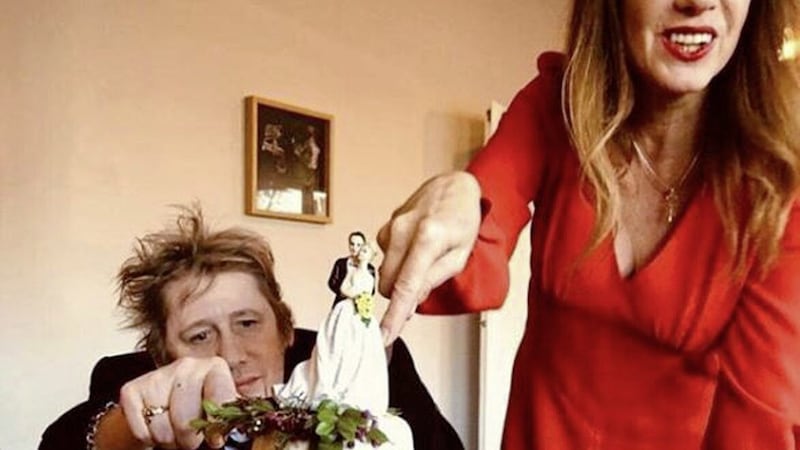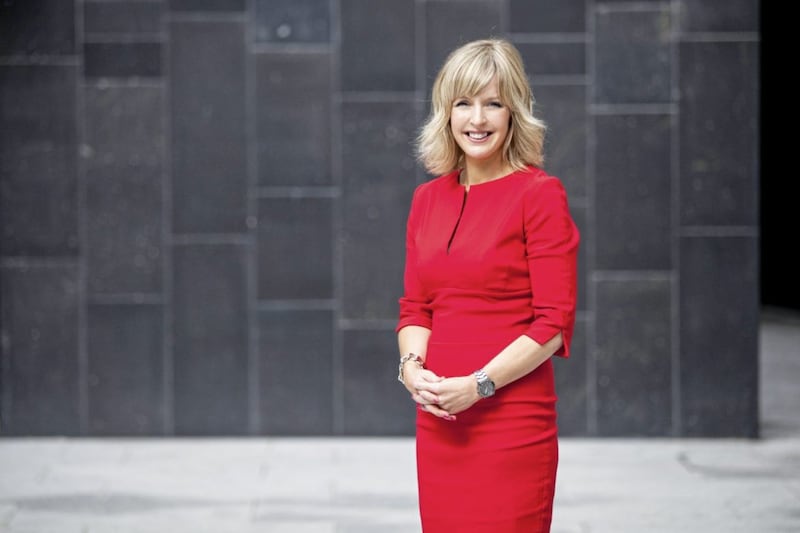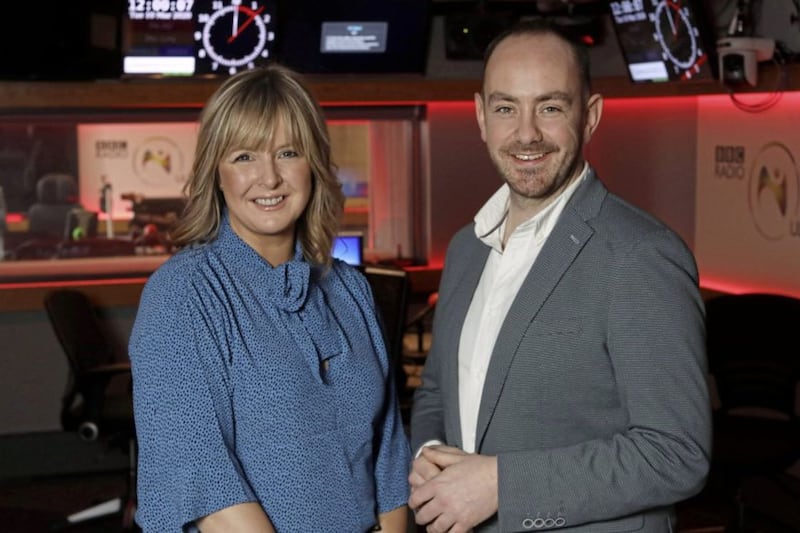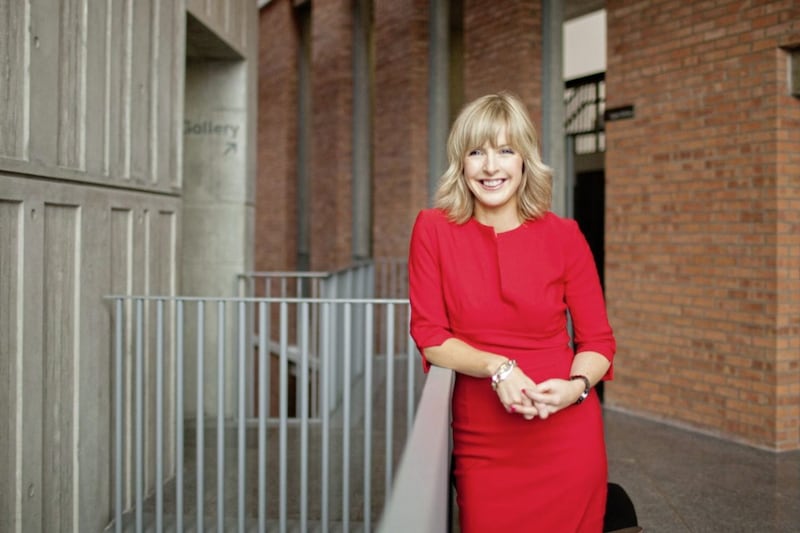"THERE was very little banana bread made," laughs broadcaster Tara Mills, who says that the past two years has been the "most intense" but "most rewarding" years of her career.
Belfast-born Tara took over at the helm of BBC Radio Ulster's Evening Extra in April 2020. Together with co-presenter Declan Harvey, they helped guide their listeners through the turmoil of the Covid pandemic, Brexit and other big news stories including the resignation of Arlene Foster and the latest collapse of the Stormont government.
"It's been a rollercoaster, but Declan and I just clicked from the outset, which made working on such intense stories easier," she says.
The pair have also provided listeners with moments of lighter relief, with their infectious laughter.
"We've had a couple of moments where we have literally been in convulsions after a particular story or a text tickled us. It's an occupational hazard," laughs Tara.
The duo has recently been joined in presenting the drive time news programme by Richard Morgan, with Tara and Declan also alternating presenting BBC One NI's Newsline.
Tara is enthusiastic about working with Richard, who made a big impression on her when he visited the BBC newsroom as a child with his late father David Morgan.
"I remember standing and having a full conversation with this adorable, and unbelievably articulate eight-year old boy. Afterwards I said to a couple of people in the office, 'If I ever have children I want them to be like him. He is amazing'."
Tara's interest in journalism began at a young age. "I grew up in a house where watching the news was an occasion and one in which you dare not speak. I was fascinated by the process," says the mum to 16-year-old Daniel and 14-year-old Aimee.
Tara was delighted by the encouragement given to her daughter recently at school when she voiced that she wanted to become an actress. It was very different to the response she got from her careers teacher who tried to put her off journalism and instead told her to "apply for nursing".
Undeterred, Tara cites veteran war correspondent Kate Adie as an inspiration. "I remember thinking to myself, 'She's a woman and can do it, why can't I'?"
While there has been much criticism over gender representation in television in recent years, Tara is pleased about how the news journalism industry is changing.
"There are a whole plethora of leading female reporters now. Look at Orla Guerin and Lyse Doucet now in Ukraine and Laura Kuenssberg and Katya Adler during the Brexit process."
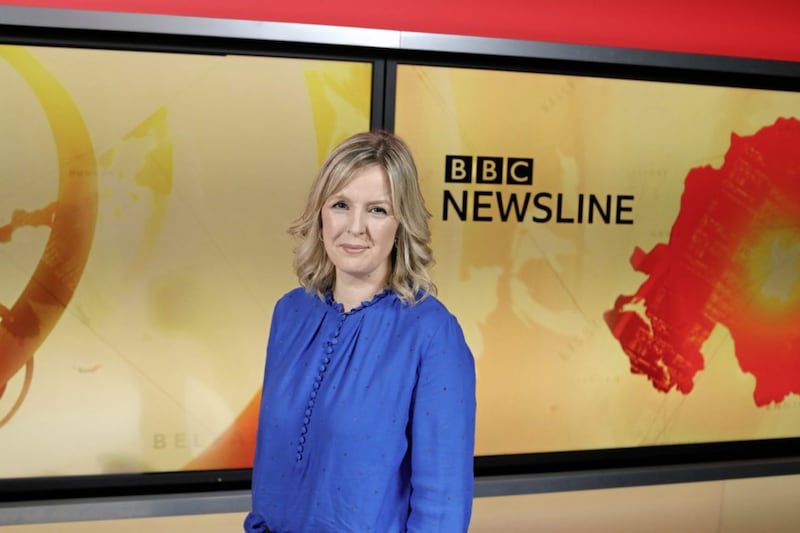
Having studied politics at the University of Ulster while doing freelance work for Belfast Community Radio and The Irish News, the 51-year-old went on to spent three years working in Glasgow with Radio Clyde.
During this time she describes her interview with footballer Paul Gascoigne after he signed for Glasgow Rangers as her most difficult. "I was the first person to interview him and he couldn't understand my accent."
Tara returned home to her native Belfast in 1997 and is celebrating her 25th year with BBC NI this year.
"It was an interesting time as it was when the talks were leading to the crescendo of the Good Friday Agreement and there was a definite sense of change in the news agenda."
Tara loves working on both mediums and says would hate to ever have to choose between them.
"They are so different. One is obviously about the visuals and telling the story in a visual way in a limited amount of time. On the radio side you get the time to plan and develop stories.
"Throughout the pandemic we focused very heavily on how communities were affected and in particular the issue of children and adults with special needs and how this section of society suffered enormously.
"There was one pupil at Fleming Fulton School who was non-verbal but had an iPad that she could spell out words on. The reporter asked her if there was anything she wanted to say and she typed out, 'Please help me'."
Tragically, Tara's brother, Richard, a war photographer for The Times, took his own life at 42, while working undercover in Zimbabwe in 2008.
His passing had a huge impact on her personally, but she admits it has also had an impact upon her professionally.
"As I've got older, I find knocking at the door of someone who has passed away a bit harder. I think if you have suffered any sort of sudden death, it does make you think differently.
"But the positive of that is having greater empathy and understanding for what people go through".
Tara admits that especially during the Covid pandemic there have been people and stories that have resonated and stayed with her more than most.
"Early on I spoke to this amazing woman, Rhonda Tait, whose mummy died of Covid and she was one of the first people to suffer that horrendous situation of not being able to say goodbye to a loved one or attend her burial.
"I remember on the day of my brother's funeral feeling lifted up by everybody's presence. To think of all those people who didn't have that part of the grieving process really bugged me.
"Interviews like that, and they're so many to mention, just stops you in your tracks. I texted Rhonda on the second anniversary of her mum's passing recently. Staying in touch and touching base with those people every now and again is really important.
"Another compelling interview recently was with a teenager who has long Covid. She's an Irish dance champion - but she still literally couldn't do a day at school."
So does she ever switch off?
"It's so funny - I was actually watching a video the other day that made me feel so guilty. My daughter was about three and it was her nativity that day. I was videoing her and asking her to sing her Whoops-a-Daisy angel song. In the background you could hear the Good Morning Ulster sync tune and my son saying, 'Mummy, the news is on now you need to listen'."
Tara confesses that although her social life may suffer at times, she's got a good work-life balance. She loves "having a ball" with her family when not working, including outdoor adventures and walks with their two cocker spaniels.
While she would like to make more television documentaries in the future, one thing Tara definitely won't be partaking in is reality TV programmes.
"Oh gosh, I couldn't think of anything worse. I would be terrible," she laughs.
However, if she were to appear on Mastermind, without hesitation her specialist subject would be Ireland in 1921.
This comes following her 51 episode Year '21 podcast alongside Declan Harvey, exploring how Northern Ireland was created.
"It all started when Declan and I sat in December of 2020 chatting and asking each other how much we really knew about 1921."
For Tara, whose school day history memories were the Second World War and the Battle of Hastings, she was embarrassed to admit her answer was "very little".
It really was such an eye-opener to go on that journey of discovery and bring the listeners with us in forming that living social history.
"There were so many moments in that year that will never leave me," adds Tara, who is genuinely excited about the forthcoming Assembly elections on May 5.
"I love an election. There is nothing better than the anticipation, excitement and drama of being in an election count centre as the candidates wait to see if they've got a job or not."
